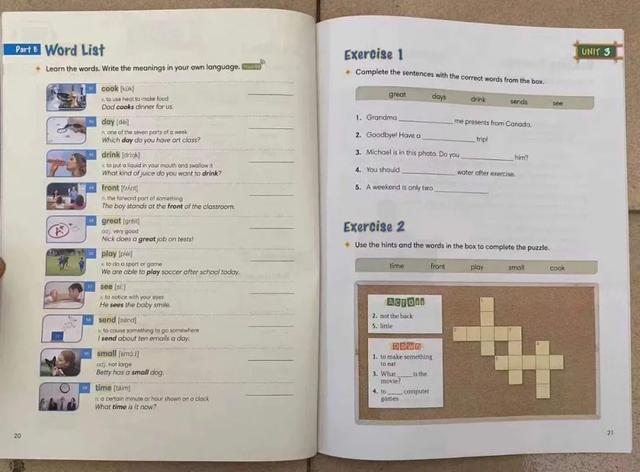
【编者按】保罗·艾伦(Paul Allen)(1953年1月21日-2018年10月15日),美国企业家,与比尔·盖茨创立了微软公司的前身,Vulcan Inc.的创始人和主席。同时他是Charter Communications主席,梦工厂股东,还拥有NFL的西雅图海鹰队和NBA的波特兰开拓者队。2018年10月15日下午,保罗·艾伦在西雅图因非霍奇金淋巴瘤并发症去世,终年65岁。
保罗是比尔·盖茨(Bill Gates)儿时的朋友,两人于1975年一同创立了微软。1983年,他由于接受霍奇金淋巴瘤的治疗而离开公司,并一直担任公司董事会成员,直到2000年。在2011年出版的回忆录中,艾伦表示,他负责了微软公司的命名,并设计了有两颗按钮的鼠标。微软CEO萨蒂亚·纳德拉(Satya Nadella)表示,艾伦对微软和整个行业的贡献是“不可或缺的”。

比尔盖茨发表声明悼念老友:“我最亲密的朋友保罗·艾伦的逝世使我感到非常伤心。从在Lakeside学校的早期阶段,到创建微软的合作伙伴关系,以及多年来我们的一些联合慈善项目,保罗是真正的合作伙伴和亲爱的朋友。没有他,个人计算就不会存在。”
在离开微软之后,艾伦通过自己的公司Vulcan成为一名投资人,收购了多家公司和平台。Vulcan目前的投资包括西雅图流行文化博物馆、一家专注于使用机器学习技术来保护气候的组织,以及开发太空飞机的Stratolaunch。艾伦还发起了多项慈善活动,一些慈善事业走上了科学道路:2003年,艾伦成立了艾伦脑科学研究所,投入5亿美元用于非营利性项目,目标是为科学家提供探索大脑工作方式所需的工具和数据。《福布斯》记者马修·赫珀尔(Matthew Herper)称其为“医学界的曼哈顿项目”。

苹果CEO蒂姆·库克在Twitter上表达了对保罗·艾伦的悼念:“我们的行业失去了一位先驱,我们的世界失去了一股善的力量,我们向保罗的朋友、艾伦家族和所有微软人致以最深的慰问。”
在接受赫珀尔采访时,艾伦谈到大脑是如何进行信息计算,告诉生物应该做什么的。他表示:“作为曾经的一名程序员,我仍然很好奇,大脑是如何运作,信息流动是如何发生的。”随后,艾伦还于2014年成立了艾伦细胞科学研究所,于2016年成立了保罗·艾伦前沿小组,为前沿研究提供资金。
艾伦研究所总裁及CEO阿兰·琼斯(Allan Jones)表示:“保罗的远见和洞察力一直激励着我和其他许多人,无论是在以他名字命名的研究所,还是在他感兴趣的其他许多领域。人们会非常想念他。今天,我们将履行我们的使命,解决生物科学领域的难题,在我们各自的领域带来重要改变,以此纪念他的遗产,并每天为艾伦研究所的长远未来做出贡献。”


保罗·艾伦与比尔·盖茨
How Paul Allen Taught Me To Peel An Orange
Paul Allen? I remember that he was a difficult interview. He didn't ingratiate, and took a while to warm up.
提起保罗·艾伦,我记得采访他的过程很艰难——他不会逢迎讨好,并且要花上好一会的功夫才会和你慢慢热络起来。
I profiled the Microsoft cofounder, who died today from complications of non-Hodgkin's lymphoma that had recurred, for Forbes six years ago, focusing on his then-new effort to create an atlas of the human brain at his Allen Institute, which was then focused entirely on stem cells.
六年前,我曾在《福布斯》杂志上评论过这位微软(Microsoft)联合创始人,他当时在艾伦研究所(Allen Institute)致力于创建人类大脑图谱的新研究,彼时,这个研究所还完全聚焦于干细胞领域。而今天(2018年10月15日),保罗却因非霍奇金淋巴瘤并发症永远地离开了这个世界。
He kept coming back to a metaphor that I didn't know what to do with at the time, that what scientists do is try to drill into an orange, making a small focused hole so they could get to the center of a problem. (In this metaphor, the orange was understanding how the brain works.) What he wanted to do, he said, was to remove the rind, so that scientists could drill into their orange more easily, and learn more, and move faster.
在采访中,保罗曾经不断阐述一个让我无所适从的比喻:科学家们所做的事就是在一个橙子上钻个小洞,制造出聚焦孔,这样他们就能找到问题的核心。(在这个比喻中,“橙子”是用来帮助理解大脑是如何工作的。)正如他所说,他想要做的就是剥掉“外皮”,让科学家们能够更容易地钻到“橙子”里,学到更多东西,从而加快研究的步伐。
He really got going when he started comparing the brain to a computer. It's clearly more complicated. "The computer is a very regular structure," he told me. "It's very uniform. It's got a bunch of memory, and it's got a little element that computes bits of memory and combines them with each other and puts them back somewhere. It's a very simple thing.
他真正进入状态的时刻是从开始将人脑与电脑进行对比的时候,显而易见地,这要复杂得多。“计算机是一个极具规则的结构,”他告诉我,“这个结构非常统一,这其中有很多内存,而计算这些内存并将它们组合在一起,再放回某个位置,仅需要一点元素。整个过程很简单。”
"So for someone to program a computer, probably, you know, maybe in most cases, you get a degree in computer science. A human being can start programming. I did it in high school. Me and Bill Gates and our friends did that. Probably, in a few months, we were programming and probably understood what there was to understand about computing within a few years of diving into it.
“所以,你知道,在大多数情况下,如果一个人想做计算机编程,首先要拿到计算机科学专业的学位。但是在我看来,只要是个人都可以做编程。这件事我在高中时就做过——我、比尔·盖茨,还有我们的朋友们就是这么做的。也许就是在那几个月的时间里,我们通过编程领悟了别人花了好几年时间潜心专研才理解的计算机知识。
"The human brain is so much more complex, and it was designed by evolution. Every little bit is very different from every other little bit. It's similar, but it's different. So it's hideously complex. And so, its going to take decades and decades of more research to understand how the brain works."
“相比之下人类的大脑要复杂得多,这是由进化决定的。每个小的单元之间可谓千差万别,即使它们是如此相似。所以,是惊人的复杂。也正因如此,要想弄清楚大脑是如何工作的,恐怕还需要几十年的研究。”
Then Allen recounted a conversation he had with Eric Kandel, the Nobel Prize-winning neuroscientist. Allen had gotten excited about the huge progress he saw his institute making. "Paul, Paul, slow down. I've spent my whole lifetime studying the brain, and not in my lifetime, and probably not in your lifetime will we understand how the brain works."
说到这里时,艾伦想起了他与诺贝尔奖得主、神经科学家埃里克·坎德尔的一次对话。那时的艾伦因为他所在的研究所取得了巨大进展感到欢欣鼓舞。埃里克·坎德尔却告诉他,“保罗,别高兴得太早。我倾尽一生的时间来研究大脑,然而这并不意味着在你或我的有生之年,就能搞明白大脑究竟是如何运作的。”
What made Allen special was that he was always willing to attack the orange rind again and again, even if he never got to the center of the fruit. That's why I'm typing this on plastic and circuit-board device with a silicon brain. It's why scientists have deep data resources to help them understand how the brain is wired together, what cells are in it, and also how stem cells work. If future generations on this planet can dive in coral reefs despite our changing climate, it will be due in part to efforts he funded. He did cool things. I only wish I got to see him play guitar. Quincy Jones and Vernon Reid both say he could play.
艾伦的特别之处就在于,他总是乐于一次次地向“橙皮”进攻,即使他从未真正到达过“橙子”的中心。这就是我现在能够在塑料和电路板设备(键盘)上用硅脑打字的原因。这也是为什么科学家能够拥有丰富的数据资源来帮助他们理解大脑是如何连接在一起的,大脑中有哪些细胞,以及干细胞是如何工作的。将来若是我们的后人在气候条件不断变化的情况下还能畅游在珊瑚礁之间,那这一定程度上都要归功于艾伦的贡献。他做了许多很赞的事情,而我现在唯一的愿望,是再一次看到他弹吉他。此外,昆西·琼斯(美国首位在大型音乐录制公司担任高级管理人员的非洲裔美国人和首位重要的非洲裔电影音乐创作人)和弗农·里德(史上100位最优秀的吉他手之一)都说过他吉他弹得不错。

Microsoft co-founder Paul Allen christens his Experience Music Project.
微软联合创始人保罗·艾伦为他的体验音乐项目命名。
图源:Getty Images
Anyway, among the lessons he leaves behind is that we should each try to rip a little rind of an orange.
不管怎样,虽然艾伦已经离开我们,但他留下的宝贵遗产之一,就是我们每个人都应该试着剥一点“橙皮”。
注:《【忆故人】保罗·艾伦的科学理论——“剥橙子”》来源于Forbes。数据观编译/王婕,转载请注明译者和来源。
End



本文来源于数据观,翻译/王婕,编辑/方茶云,转载请注来源。欲了解更多大数据丨区块链丨人工智能行业相关资讯丨干货丨报告等,可搜索数据观微信公众号(ID:cbdioreview)进入查看。
,




